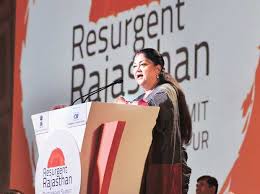 Bandhan Bank Chairman and Managing Director Chandra Shekhar Ghosh has started disbursing regular loans, although at a muted pace, on steady deposit mobilisation.
Bandhan Bank Chairman and Managing Director Chandra Shekhar Ghosh has started disbursing regular loans, although at a muted pace, on steady deposit mobilisation.
The bank is offering retail, small and medium enterprises and agriculture loans. Housing loans have been capped at Rs 1,5 lakh commercial vehicle loans at Rs 1,0 lakh and loans to small and medium enterprises at Rs 2,5 lakh. All loans are linked to the base rate, which is set at 12 per cent, much higher than most banks. According to a Bandhan Bank spokesperson, it started its credit operations on a small scale about a month ago. The bank was launched on August 23, 2015.
Bandhan Bank has garnered deposits of Rs 3,700 crore, according to C S Ghosh, CEO and MD. The bank expects a fresh round of capital infusion of Rs 428 crore from International Finance Corporation and the Singapore government-backed GIC by March 2016. The two agencies have already invested Rs 1,020 crore in the bank and have committed an equity investment of Rs 1,600 crore.
The capital base of Bandhan Bank is Rs 2,570 crore, against the regulatory requirement of Rs 500 crore.
Fresh capital infusion will bolster this to Rs 3,052 crore, translating to a credit risk-weighted asset ratio of 44.54 per cent, one of the highest in the sector.
The bank is depending on aggressive deposit mobilisation to bring down cost of funds over the next year.
The plan is to be aggressive in taking deposits while going slow in lending. Thus, even as its lending rates are high, the bank is offering competitive deposit rates. Savings interest rates have been fixed at 4.25 per cent for deposits below Rs 1 lakh and five per cent for above Rs 1 lakh. For term deposits, the maximum interest rate, between three-five years maturity, has been fixed at 8.5 per cent, with an additional 0.5 per cent for senior citizens. Bandhan Bank started operations with a simultaneous launch of 501 branches, 50 ATMs, a microloan book of Rs 10,500 crore and savings accounts totalling 1.43 million. By the end of this financial year, the plan is to have 632 branches and 250 ATMs in 27 states.






